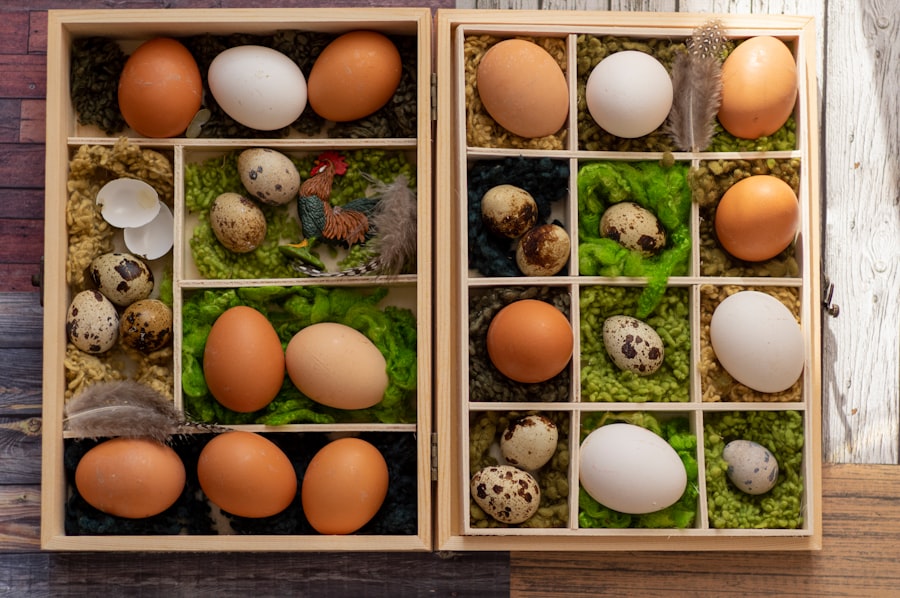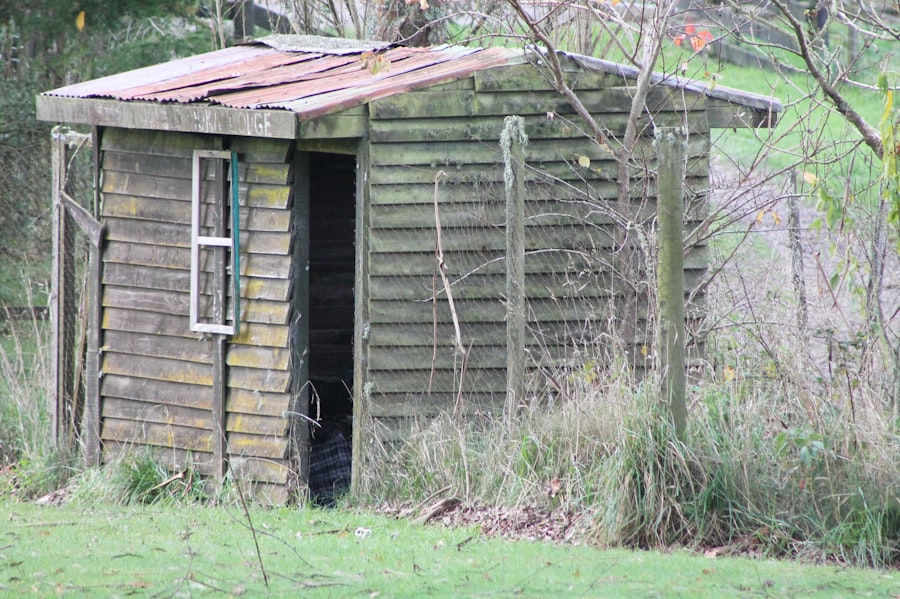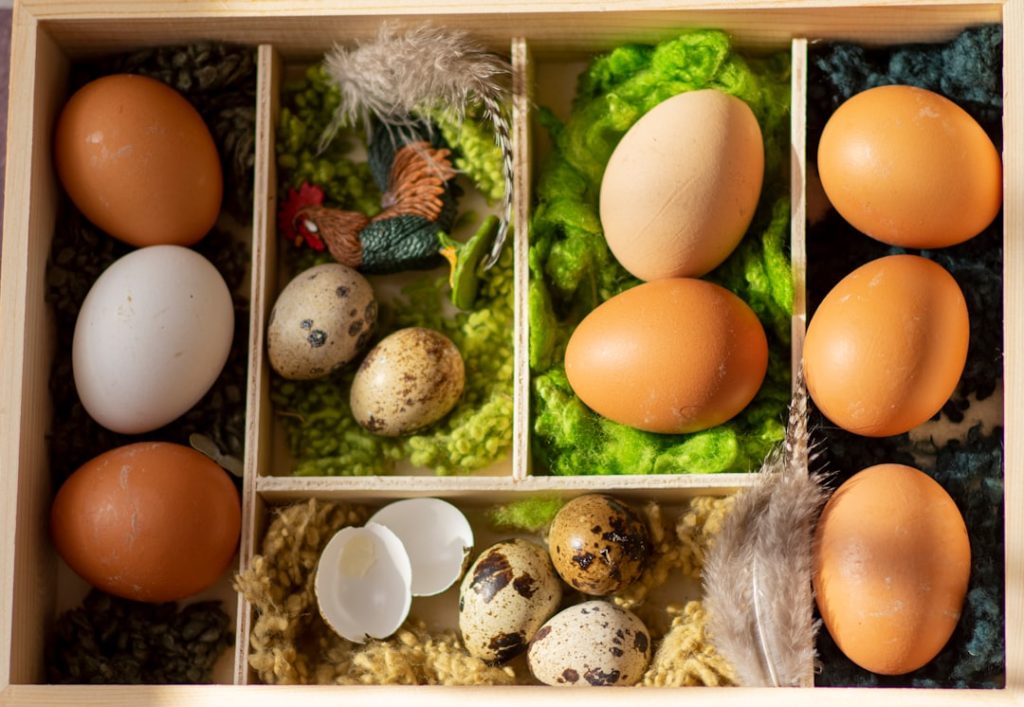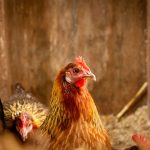Keeping bugs off chickens is essential for maintaining their health and well-being. Pests such as mites, lice, and ticks can cause various health problems in chickens, including skin irritation, feather loss, anemia, and transmission of diseases like fowl pox and salmonella. These infestations can negatively impact egg production, quality, and overall chicken growth and development.
Bug-related stress and discomfort can also affect chicken behavior and productivity. Therefore, chicken owners must prioritize pest prevention and control to ensure the health and productivity of their flock. Keeping chickens free from bugs is not only beneficial for the birds but also for human safety.
Some poultry pests, like mites and lice, can bite humans, causing skin irritation and discomfort. In severe cases, these pests may transmit diseases to humans. By maintaining a bug-free environment for chickens, poultry owners create a safer and more pleasant atmosphere for themselves and others who interact with the flock.
Understanding the importance of pest control in poultry management is crucial for protecting the health and safety of both chickens and their caretakers.
Table of Contents
- 1 Creating a clean and healthy environment for chickens
- 2 Implementing natural pest control methods
- 3 Using preventative measures to avoid bug infestations
- 4 Providing proper nutrition to boost chickens’ immune systems
- 5 Regularly inspecting and maintaining the chicken coop
- 6 Seeking professional help when necessary
- 7 FAQs
- 7.1 What are some common bugs that can affect chickens?
- 7.2 Why is it important to keep bugs off chickens?
- 7.3 What are some methods for keeping bugs off chickens?
- 7.4 How often should chickens be checked for bugs?
- 7.5 Are there any natural remedies for keeping bugs off chickens?
- 7.6 Can bugs on chickens affect humans?
Key Takeaways
- Keeping bugs off chickens is important for their overall health and well-being
- Creating a clean and healthy environment for chickens is essential in preventing bug infestations
- Implementing natural pest control methods, such as diatomaceous earth, can help keep bugs away from chickens
- Using preventative measures, like regular coop cleaning and proper waste management, can help avoid bug infestations
- Providing proper nutrition, including a balanced diet and supplements, can boost chickens’ immune systems and help them resist bug infestations
- Regularly inspecting and maintaining the chicken coop can help identify and address any potential bug infestations
- Seeking professional help, such as a veterinarian or pest control expert, can be necessary if bug infestations become severe or difficult to manage
Creating a clean and healthy environment for chickens
Regular Cleaning and Maintenance
Regularly cleaning the chicken coop and surrounding areas can help eliminate potential breeding grounds for pests such as mites, lice, and flies. This includes removing old bedding, droppings, and any other debris that may attract or harbor bugs.
Proper Ventilation and Space
Ensuring proper ventilation in the coop can help reduce moisture levels, which can also deter pests from taking up residence. Providing ample space for the chickens to roam and dust bathe can also help keep bugs at bay, as dust bathing is a natural behavior that helps chickens control parasites on their bodies.
Nutrition and Overall Health
In addition to regular cleaning and maintenance, it is important to provide chickens with clean water and high-quality feed to support their immune systems and overall health. Proper nutrition can help boost the chickens’ natural defenses against pests and diseases, making them less susceptible to bug infestations.
Implementing natural pest control methods

Implementing natural pest control methods is an effective way to keep bugs off chickens without relying on potentially harmful chemicals or pesticides. One natural method of pest control is introducing beneficial insects such as ladybugs, lacewings, and predatory mites to the chicken coop and surrounding areas. These insects can help control populations of harmful pests such as mites, flies, and other insects that may bother the chickens.
Additionally, planting insect-repelling herbs such as lavender, mint, and basil around the coop can help deter pests from taking up residence. Another natural pest control method is using diatomaceous earth, a fine powder made from fossilized algae. Diatomaceous earth can be sprinkled in the chicken coop and nesting boxes to help control pests such as mites, lice, and fleas.
The powder works by dehydrating the exoskeletons of insects, ultimately leading to their demise. Additionally, regularly adding fresh herbs such as garlic, oregano, and thyme to the chickens’ feed can help repel pests and support their overall health. By implementing natural pest control methods, poultry owners can effectively keep bugs off chickens while minimizing the use of potentially harmful chemicals.
Using preventative measures to avoid bug infestations
Using preventative measures to avoid bug infestations is essential for maintaining the health and well-being of a chicken flock. One preventative measure is practicing good biosecurity by limiting exposure to potential sources of pests such as wild birds, rodents, and other animals that may carry parasites. This can be achieved by securing the chicken coop with proper fencing and netting to prevent entry by unwanted visitors.
Additionally, regularly inspecting new additions to the flock for signs of pests before introducing them to existing birds can help prevent the spread of infestations. Another preventative measure is regularly treating the chicken coop and surrounding areas with natural pest repellents such as essential oils or herbal sprays. These repellents can help deter pests from taking up residence in the coop without posing harm to the chickens or the environment.
Additionally, using pest-resistant bedding materials such as pine shavings or straw can help reduce the likelihood of bug infestations in the coop. By using preventative measures to avoid bug infestations, poultry owners can proactively protect their flock from potential health issues and discomfort caused by pests.
Providing proper nutrition to boost chickens’ immune systems
Providing proper nutrition to boost chickens’ immune systems is essential for keeping bugs off chickens and promoting their overall health and well-being. A balanced diet that includes high-quality feed with essential vitamins, minerals, and nutrients can help support the chickens’ immune systems, making them less susceptible to bug infestations and diseases. Additionally, supplementing the chickens’ diet with natural immune-boosting ingredients such as probiotics, garlic, and apple cider vinegar can further enhance their ability to ward off pests.
Furthermore, ensuring that chickens have access to clean water at all times is crucial for their overall health and immune function. Dehydration can weaken the chickens’ immune systems, making them more vulnerable to pest infestations and other health issues. Providing fresh water in clean containers can help ensure that the chickens stay hydrated and healthy.
Overall, providing proper nutrition to boost chickens’ immune systems is essential for keeping bugs off chickens and promoting their overall health and well-being.
Regularly inspecting and maintaining the chicken coop

Identifying Potential Issues
Inspecting the coop for signs of pests such as mites, lice, or flies on a regular basis can help identify potential issues before they escalate into full-blown infestations.
Maintenance and Repair
Regularly cleaning and maintaining the coop by removing old bedding, droppings, and debris can help eliminate potential breeding grounds for pests. Furthermore, regularly checking for any structural damage or openings in the coop that may allow pests to enter is important for preventing infestations. Repairing any cracks or holes in the coop’s walls or roof can help keep bugs out and create a more secure environment for the chickens.
Natural Pest Control
Additionally, regularly treating the coop with natural pest repellents such as diatomaceous earth or herbal sprays can help deter pests from taking up residence in the coop. By regularly inspecting and maintaining the chicken coop, poultry owners can proactively prevent bug infestations and promote a healthy environment for their flock.
Seeking professional help when necessary
Seeking professional help when necessary is important for addressing severe bug infestations or persistent pest issues that may be beyond the scope of DIY solutions. If poultry owners are unable to effectively control a bug infestation using natural methods or if the infestation has become severe, it may be necessary to seek assistance from a professional pest control service that specializes in poultry pest management. These professionals have the expertise and resources to effectively address severe pest infestations while minimizing harm to the chickens and the environment.
Additionally, consulting with a veterinarian or poultry health expert may be necessary if a bug infestation has led to health issues or diseases within the flock. These professionals can provide guidance on treatment options and preventive measures to help restore the health of the affected birds and prevent future infestations. By seeking professional help when necessary, poultry owners can ensure that their flock receives the care and attention needed to address severe bug infestations and maintain their overall health and well-being.
In conclusion, keeping bugs off chickens is essential for maintaining their health and well-being while creating a safe environment for both the birds and their caretakers. By understanding the importance of bug prevention, implementing natural pest control methods, using preventative measures, providing proper nutrition, regularly inspecting and maintaining the chicken coop, and seeking professional help when necessary, poultry owners can effectively keep bugs off their flock while promoting their overall health and happiness. Prioritizing bug prevention and control is crucial for ensuring that chickens thrive in a clean and healthy environment free from harmful pests.
If you’re interested in learning more about keeping bugs off chickens, you might also want to check out this article on what vegetables do quails eat. Understanding the dietary needs of quails can also help in keeping them healthy and free from pests.
FAQs
What are some common bugs that can affect chickens?
Some common bugs that can affect chickens include mites, lice, fleas, ticks, and flies.
Why is it important to keep bugs off chickens?
It is important to keep bugs off chickens because these pests can cause irritation, stress, and discomfort to the chickens. They can also spread diseases and reduce egg production.
What are some methods for keeping bugs off chickens?
Some methods for keeping bugs off chickens include regular cleaning and disinfecting of the coop, using diatomaceous earth or other natural insecticides, providing dust baths for the chickens, and using pest-resistant bedding.
How often should chickens be checked for bugs?
Chickens should be checked for bugs regularly, at least once a week, to ensure early detection and treatment of any infestations.
Are there any natural remedies for keeping bugs off chickens?
Yes, there are natural remedies for keeping bugs off chickens, such as using herbs like lavender and mint, as well as essential oils like neem oil and tea tree oil. Additionally, diatomaceous earth is a natural and effective insecticide for controlling bugs on chickens.
Can bugs on chickens affect humans?
Yes, some bugs that affect chickens, such as mites and lice, can also affect humans. It is important to take precautions and practice good hygiene when handling chickens to prevent any potential transmission of pests to humans.
Meet Walter, the feathered-friend fanatic of Florida! Nestled in the sunshine state, Walter struts through life with his feathered companions, clucking his way to happiness. With a coop that’s fancier than a five-star hotel, he’s the Don Juan of the chicken world. When he’s not teaching his hens to do the cha-cha, you’ll find him in a heated debate with his prized rooster, Sir Clucks-a-Lot. Walter’s poultry passion is no yolk; he’s the sunny-side-up guy you never knew you needed in your flock of friends!







